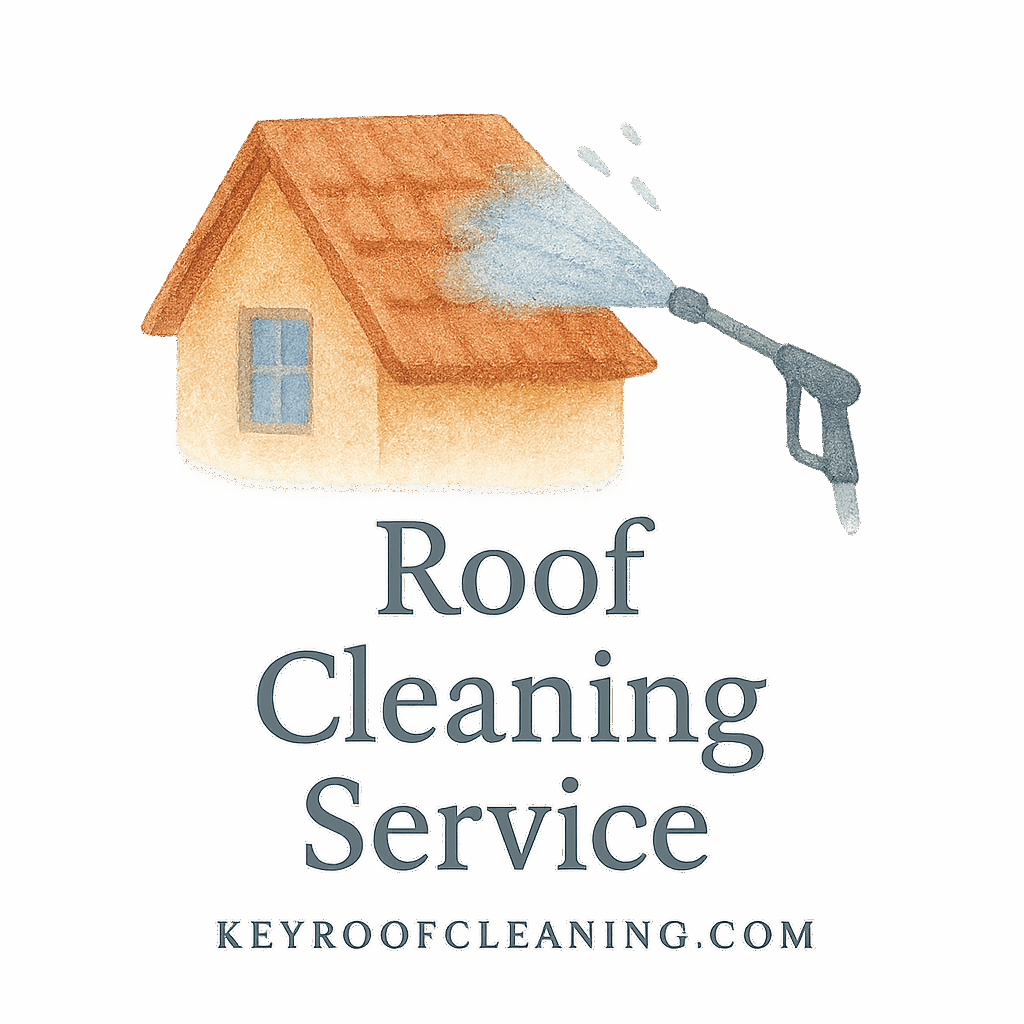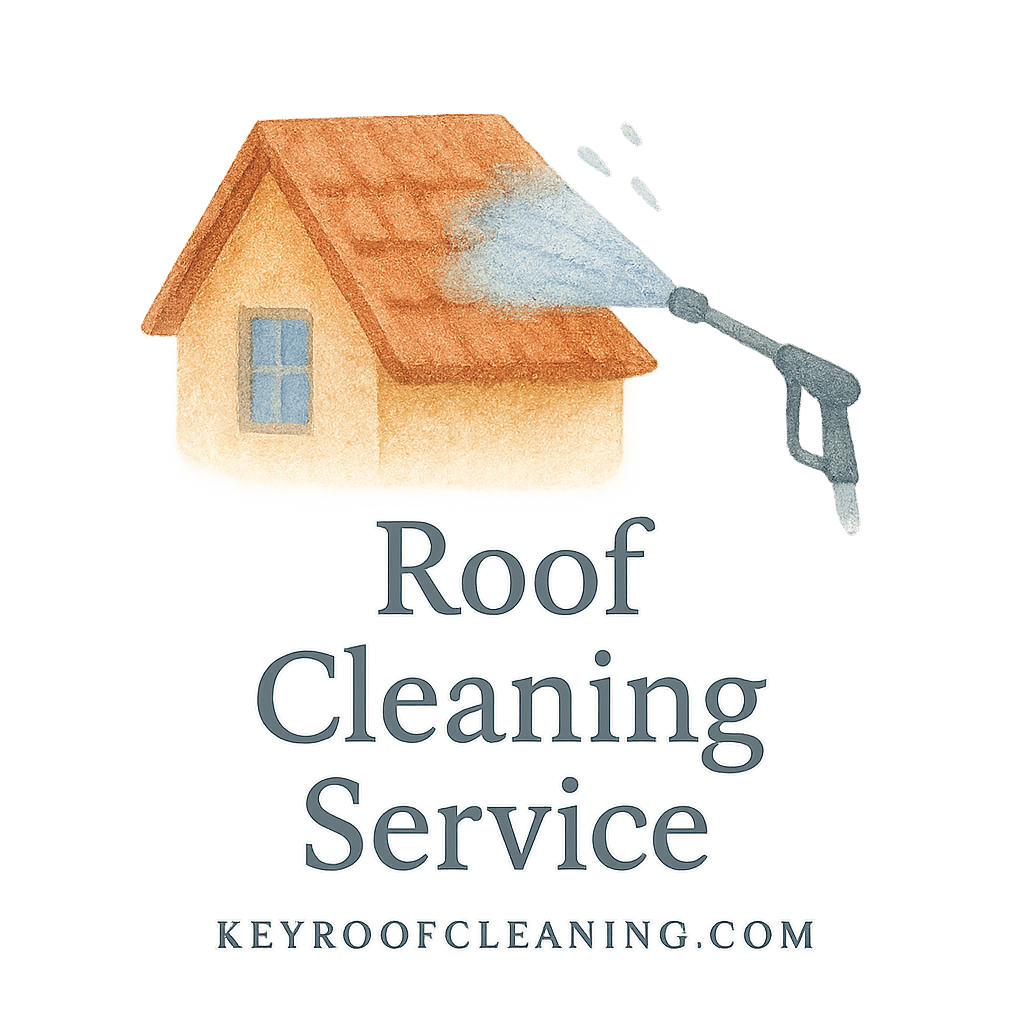Introduction
Let’s be honest — roof cleaning probably isn’t at the top of your to-do list. But it should be. A clean roof isn’t just about curb appeal; it’s about protecting one of the most expensive investments you own — your home. Unfortunately, there’s a mountain of misinformation floating around about how, when, and why you should clean your roof.
In this post, we’re going to debunk 8 common roof cleaning myths that may be damaging your home more than you think. So grab a cup of coffee and let’s bust these myths wide open.
Myth #1: “Rain Cleans Your Roof”
Why This Is Misleading
Rain might wash off a little dust, but it doesn’t touch the moss, algae, or mold growing between your shingles. In fact, rain often contributes to moisture buildup — the very thing algae and mildew love.
What Rain Can’t Do
Rain won’t remove the black streaks caused by Gloeocapsa Magma, a bacteria that feeds on your shingles. Over time, this bacteria can deteriorate your roof’s material. Instead of relying on the sky to do the dirty work, read our Basics of Roof Cleaning for practical solutions.
Myth #2: “Pressure Washing Is Always the Best”
Risks of High-Pressure Cleaning
While pressure washing might seem like a fast fix, it’s not suitable for every roof. High-pressure water can strip protective granules off asphalt shingles and even crack tiles on delicate roofs.
Want to learn more about this? Check our guide on Roof Cleaning Techniques and explore the tag cleaning methods.
Safer Alternatives
Soft washing is often a safer, more effective method. It uses low-pressure water combined with biodegradable cleaners to eliminate grime without causing damage — which is especially important for delicate roof materials.
Myth #3: “Roof Cleaning Damages Shingles”
Proper Techniques Make the Difference
Improper cleaning can harm your roof — that’s true. But when done right, it’s completely safe. In fact, regular cleaning helps extend the life of your shingles.
Know Your Roof Type
Each roof material — from asphalt to tile — requires a unique approach. If you’re not sure where to start, visit our section on Roof Types & Materials to make the right call.

Myth #4: “Roof Cleaning Is Just Cosmetic”
Real Benefits Beyond Looks
Sure, a clean roof looks fantastic — but the benefits don’t stop there. Removing algae, moss, and debris prevents long-term damage, reducing the need for costly repairs down the road.
Mold and Algae Hazards
Moss retains moisture like a sponge, leading to rot, leaks, and even interior mold issues. Roof cleaning also improves your home’s energy efficiency by removing growth that traps heat.
Check out our tag on benefits to dig deeper into why this matters.
Myth #5: “It’s a DIY Job Anyone Can Do”
Ladder Safety and OSHA Guidelines
Roof cleaning isn’t like cleaning your driveway. It involves climbing, balance, and often slippery surfaces. Accidents are common, especially without the proper gear or knowledge of OSHA safety protocols.
Don’t miss our Maintenance & Safety guide and important tips on ladder safety.
Tools and Products Matter
Using the wrong cleaner can discolor your roof or corrode metal fixtures. Equip yourself with insights from our Tools & Products section before attempting anything.
Myth #6: “All Cleaning Solutions Are the Same”
Why Biodegradable & Eco-Friendly Matter
Not all roof cleaning products are created equal. Some contain bleach or harsh chemicals that harm nearby plants, pets, and even your roof’s surface.
Explore our tag on biodegradable and eco-friendly options for safer, greener cleaning.
Harsh Chemicals Can Harm Your Roof
Chemical residue can break down roofing materials over time, leading to brittleness and leaks. Choose green methods to protect both your roof and the environment.
Myth #7: “Only Old Roofs Need Cleaning”
Roof Age vs. Maintenance
Even new roofs can grow mold, moss, or algae within a year in humid climates. Regular cleaning keeps your roof healthy, no matter its age.
Preventive Maintenance Saves Money
Think of cleaning as a form of preventive maintenance, not repair. It helps avoid costly damage, extends roof life, and enhances energy efficiency. Keep up with your roof cleaning checklist to stay on track.
Myth #8: “Roof Cleaning Isn’t Worth the Cost”
The Long-Term ROI of Roof Cleaning
Roof cleaning may seem like an unnecessary expense — until you get hit with a $10,000 replacement bill. Investing in regular cleaning pays off by prolonging your roof’s life and improving home value.
Hiring Tips for Professional Services
Looking for help? Check our professional service and hiring tips to ensure you choose a qualified, experienced contractor who uses safe, sustainable methods.
Conclusion
There you have it — 8 roof cleaning myths officially busted. Hopefully, you now see that roof cleaning isn’t just a vanity project or a rainy-day chore. It’s essential for protecting your home, health, and wallet.
So next time someone tells you to wait for the rain or grab a power washer, you’ll know better. And if you’re ever in doubt, the resources at KeyRoofCleaning.com are here to guide you every step of the way.
FAQs
How often should I clean my roof?
At least once every 12–18 months, or more frequently if you live in a humid or heavily treed area.
Is it safe to clean a roof in summer?
Yes, but avoid extreme heat and midday sun. Early morning or late afternoon is best.
What’s the best method for tile roofs?
Soft washing is ideal. Learn more in our post on tile roof cleaning.
Can I use bleach to clean my roof?
It’s not recommended. Bleach can damage materials and harm the environment. Opt for eco-friendly options instead.
How do I choose a roof cleaning service?
Look for experience, reviews, insurance, and eco-conscious practices. Use our hiring tips guide for a checklist.
Are eco-friendly products really effective?
Absolutely. Green living solutions work well without harming your roof or surroundings.
What signs mean my roof needs cleaning?
Black streaks, moss growth, water pooling, or a general dull appearance are all red flags.


